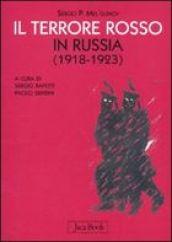
Terrore rosso in Russia (1918-1923) (Il)
Paolo Sensini,
Sergio Rapetti,
Sergej P. Mel'gunov
Il terrore rosso in Russia (1918-1923): All'inizio di settembre del 1918, sul finire dell'anno primo del potere sovietico in Russia, viene arrestato, in una retata di avversari politici, lo stimato storico e leader di un piccolo partito socialista-popolare, Sergej P. Mel'gunov. Presto, almeno in quell'occasione, verranno lasciate cadere dagli inquirenti, per manifesta infondatezza, le accuse di complicità in attentati e complotti, ma già durante questa prima detenzione e le relative indagini, Mel'gunov non rinuncerà mai a cercare interlocutori coi quali dibattere le proprie idee sul futuro del paese dopo lo zarismo. Alla Lubjanka, sede della Ceka, il suo interrogatorio si trasforma in uno snervante colloquio di ore con il "ferreo Dzerzinskij" durante il quale Mel'gunov cerca di convincere il capo della polizia politica segreta che la strada da loro imboccata col Terrore è sbagliata e immorale; al Cremlino pone la stessa questione al conoscente di vecchia data Vladimir Bonc-Bruevic, intimo di Lenin e divenuto capo di gabinetto del Consiglio dei commissari del popolo: quello ammette il fatto della soppressione di ogni libertà, ma gli assicura che è intenzione dei bolscevichi abbreviare al massimo il periodo della dittatura. La dittatura diventerà invece un sistema stabile di potere contrassegnato dal Terrore. E malgrado ventitré perquisizioni e requisizioni di libri e altri quattro arresti, Mel'gunov raccoglie da allora gli elementi per stilare, da documenti ufficiali e testimonianze attendibili, le sue minuziose "Cronache". In early September 1918, at the end of the first year of Soviet power in Russia, he was arrested in a roundup of political opponents, the esteemed historian and leader of a small Socialist Party-popular, Sergei p. melgunov. Soon, at least on that occasion, they will be dropped by the investigators, to manifestly unfounded, allegations of complicity in terrorist attacks and conspiracies, but already during this first detention and investigation, melgunov will not give up ever to find interlocutors with whom to discuss their ideas about the future of the country after tsarism. At Lubyanka, headquarters of the Cheka, her interrogation becomes a nerve-wracking hours interview with "farmer Dzerzinskij" during which melgunov tries to convince the police chief secret policy that the way you have taken them with terror is wrong and immoral; the Kremlin poses the same question to longtime acquaintance Vladimir Ballgobin-Bruevic, intimate of Lenin and became Chief of staff of the Council of people's commissars: that admits the fact of the Suppression of freedom, but assures him that it is the intention of the Bolsheviks shorten the maximum period of dictatorship. The dictatorship will become instead a stable system of power marked by terror. And despite 23 searches and requisitions of books and four other arrests, melgunov collects since the elements to compile, from official documents and testimonies, his thorough "Chronicles".
Al momento non disponibile, ordinabile in 3 settimane circa
Dettagli Libro
- Titolo: Terrore rosso in Russia (1918-1923) (Il)
- Autore: Paolo Sensini, Sergio Rapetti, Sergej P. Mel'gunov
- Curatore:
- Traduttore:
- Illustratore:
- Editore: Jaca Book
- Collana: DI FRONTE E ATTRAVERSO. STORIA
- Data di Pubblicazione: 2010
- Pagine:
- Formato:
- ISBN: 9788816409545
- Storia - Storia
Libri che ti potrebbero interessare

Gli ultimi giorni di Gesù
Pierluigi Baima Bollone
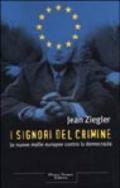
I signori del crimine
Jean Ziegler

Perché sono ebreo
Marek Halter, Eliane Nortey
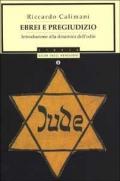
Ebrei e pregiudizio
Riccardo Calimani

Kristy e il disastro ambulante
Ann M. Martin
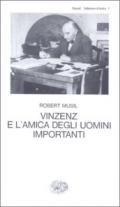
Vinzenz e l'amica degli uomini important...
Italo Alighiero Chiusano, Robert Musil
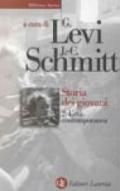
Storia dei giovani. 2: L'Età contempora...
J. C. Schmitt, R. Cincotta, C. Patanè, G. Levi

Storia e tecnica della fotografia
Italo Zannier
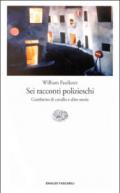
Sei racconti polizieschi
E. Turchetti, William Faulkner, Emanuela Turchetti, O. Fatica, Ottavio Fatica

La porta della salvezza. Una donna e sua...
Vivaldi Mariella

Il pomeriggio di un piastrellista
Carmen Giorgetti Cima, Lars Gustafsson, C. Giorgetti Cima

Breve storia del futuro. Cosa accadrà d...
Laura Cangemi, Eirik Newth, Fabian Negrin






